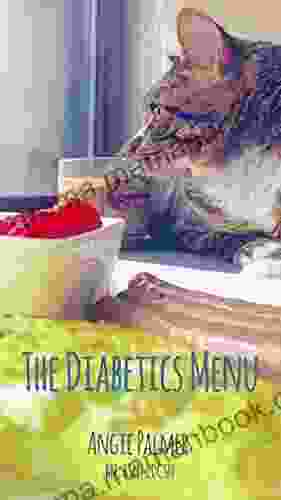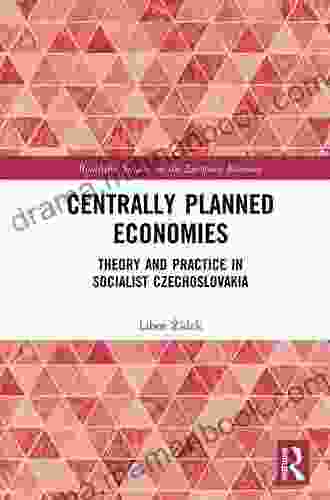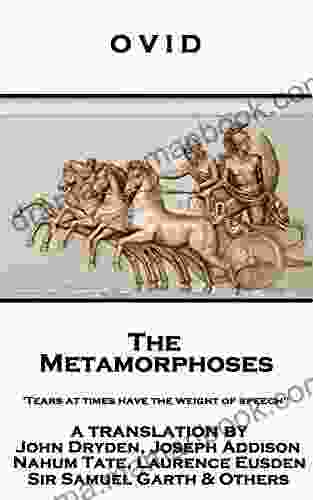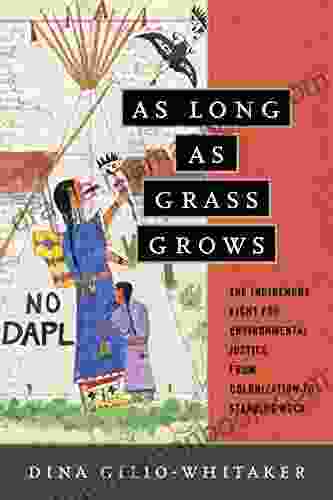Theory and Practice in Socialist Czechoslovakia: Routledge Studies in the History of Communism

Socialist Czechoslovakia was a unique experiment in the history of communism. It was the first country in the world to establish a communist government through a peaceful revolution, and it remained a socialist state for over four decades. During this time, Czechoslovakia underwent significant social, economic, and political changes, as the government attempted to implement the principles of Marxism-Leninism in a real-world setting.
This article will explore the theory and practice of socialism in Czechoslovakia. We will examine the ideological foundations of the Czechoslovak communist regime, and we will analyze the ways in which these principles were implemented in practice. We will also discuss the challenges and contradictions that the Czechoslovak government faced in its attempt to build a socialist society.
4.7 out of 5
| Language | : | English |
| File size | : | 6321 KB |
| Text-to-Speech | : | Enabled |
| Screen Reader | : | Supported |
| Enhanced typesetting | : | Enabled |
| Word Wise | : | Enabled |
| Print length | : | 271 pages |
The Ideological Foundations of Czechoslovak Socialism
The ideological foundations of Czechoslovak socialism can be traced back to the writings of Karl Marx and Friedrich Engels. Marx and Engels argued that capitalism was an exploitative system that would eventually collapse under its own contradictions. They believed that the only way to achieve true equality and justice was to overthrow capitalism and establish a socialist society.
The Czechoslovak communist party adopted the ideas of Marx and Engels as its own, and it used them to justify its seizure of power in 1948. The party's goal was to create a socialist society in Czechoslovakia, based on the principles of social ownership of the means of production, central planning, and distribution according to need.
The Practice of Socialism in Czechoslovakia
The Czechoslovak government began to implement its socialist program immediately after taking power. It nationalized key industries, collectivized agriculture, and introduced a system of central planning. The government also implemented a comprehensive social welfare system, which included free healthcare, education, and childcare.
In the early years of the communist regime, Czechoslovakia experienced rapid economic growth. The government invested heavily in heavy industry, and the country became a major producer of steel, machinery, and chemicals. However, the economy began to slow down in the 1970s, and Czechoslovakia fell behind other Western countries in terms of technological innovation.
The Czechoslovak government also faced significant challenges in implementing its social policies. The collectivization of agriculture led to a decline in food production, and the government was forced to import food from other countries. The government also struggled to provide adequate housing and other social services for its citizens.
The Challenges and Contradictions of Czechoslovak Socialism
The Czechoslovak government faced a number of challenges and contradictions in its attempt to build a socialist society. One of the biggest challenges was the lack of democracy. The communist party was the only legal political party in Czechoslovakia, and it controlled all aspects of society. This lack of democracy led to a number of abuses, including the suppression of dissent and the imprisonment of political prisoners.
Another challenge that the Czechoslovak government faced was the problem of economic inefficiency. The centrally planned economy was unable to keep up with the demands of the people, and there were often shortages of goods and services. This economic inefficiency led to a decline in the standard of living for many Czechs and Slovaks.
Finally, the Czechoslovak government faced the challenge of nationalism. Czechoslovakia was a multi-ethnic state, and there were tensions between the Czech and Slovak populations. The government attempted to suppress these tensions, but they ultimately led to the breakup of Czechoslovakia in 1993.
Socialist Czechoslovakia was a complex and contradictory experiment. The government attempted to implement the principles of Marxism-Leninism in a real-world setting, but it faced a number of challenges and contradictions. These challenges included the lack of democracy, the problem of economic inefficiency, and the challenge of nationalism. Ultimately, these challenges led to the breakup of Czechoslovakia in 1993.
Despite its failures, Socialist Czechoslovakia also made some significant achievements. The government implemented a comprehensive social welfare system, which provided free healthcare, education, and childcare for all citizens. The government also invested heavily in education, and Czechoslovakia became one of the most literate countries in the world.
The legacy of Socialist Czechoslovakia is still debated today. Some people argue that it was a failed experiment that led to economic stagnation and political oppression. Others argue that it was a successful experiment that created a more just and equitable society. Ultimately, the legacy of Socialist Czechoslovakia is a complex one, and it is likely to be debated for many years to come.
References
- Brown, Archie. The Rise and Fall of Communism. London: Bodley Head, 2009.
- Golan, Galia. The Czechoslovak Reform Movement: Communism in Crisis. Cambridge: Cambridge University Press, 1991.
- Kaplan, Karel. The Communist Party in Czechoslovakia: The Inside Story. London: C. Hurst & Co., 1990.
- Kreisler, Harry. Prague in the Shadow of the Swastika: Daily Life in Occupied Czechoslovakia. Oxford: Berg, 1995.
- Pryor, Frederic L. The Red and the Green: The Rise and Fall of Collectivized Agriculture in Marxist Regimes. Princeton: Princeton University Press, 1992.
4.7 out of 5
| Language | : | English |
| File size | : | 6321 KB |
| Text-to-Speech | : | Enabled |
| Screen Reader | : | Supported |
| Enhanced typesetting | : | Enabled |
| Word Wise | : | Enabled |
| Print length | : | 271 pages |
Do you want to contribute by writing guest posts on this blog?
Please contact us and send us a resume of previous articles that you have written.
 Top Book
Top Book Novel
Novel Fiction
Fiction Nonfiction
Nonfiction Literature
Literature Paperback
Paperback Hardcover
Hardcover E-book
E-book Audiobook
Audiobook Bestseller
Bestseller Classic
Classic Mystery
Mystery Thriller
Thriller Romance
Romance Fantasy
Fantasy Science Fiction
Science Fiction Biography
Biography Memoir
Memoir Autobiography
Autobiography Poetry
Poetry Drama
Drama Historical Fiction
Historical Fiction Self-help
Self-help Young Adult
Young Adult Childrens Books
Childrens Books Graphic Novel
Graphic Novel Anthology
Anthology Series
Series Encyclopedia
Encyclopedia Reference
Reference Guidebook
Guidebook Textbook
Textbook Workbook
Workbook Journal
Journal Diary
Diary Manuscript
Manuscript Folio
Folio Pulp Fiction
Pulp Fiction Short Stories
Short Stories Fairy Tales
Fairy Tales Fables
Fables Mythology
Mythology Philosophy
Philosophy Religion
Religion Spirituality
Spirituality Essays
Essays Critique
Critique Commentary
Commentary Glossary
Glossary Bibliography
Bibliography Index
Index Table of Contents
Table of Contents Preface
Preface Introduction
Introduction Foreword
Foreword Afterword
Afterword Appendices
Appendices Annotations
Annotations Footnotes
Footnotes Epilogue
Epilogue Prologue
Prologue Lian Dolan
Lian Dolan Bert Dohmen
Bert Dohmen Ranjita Dawn
Ranjita Dawn Gravity Goldberg
Gravity Goldberg Jon Cope
Jon Cope Inadvisably Compelled
Inadvisably Compelled Julia L Mickenberg
Julia L Mickenberg Jennifer Laviano
Jennifer Laviano Amy Sophiamehr
Amy Sophiamehr Kathy Collins
Kathy Collins Mary Karr
Mary Karr Robin James
Robin James Rupnarayan Bose
Rupnarayan Bose Alta H Mabin
Alta H Mabin David Halberstam
David Halberstam Dan Rafter
Dan Rafter Johnny Ray
Johnny Ray Cory Weagant
Cory Weagant Michelle Robinson
Michelle Robinson Will Hutchison
Will Hutchison
Light bulbAdvertise smarter! Our strategic ad space ensures maximum exposure. Reserve your spot today!

 Ralph Waldo EmersonThe San Francisco Writers Conference 2024 Writing Contest Anthology: A...
Ralph Waldo EmersonThe San Francisco Writers Conference 2024 Writing Contest Anthology: A... Hank MitchellFollow ·2.5k
Hank MitchellFollow ·2.5k Mark MitchellFollow ·15k
Mark MitchellFollow ·15k Emilio CoxFollow ·15.9k
Emilio CoxFollow ·15.9k Clark CampbellFollow ·10.6k
Clark CampbellFollow ·10.6k Bill GrantFollow ·8.4k
Bill GrantFollow ·8.4k Arthur Conan DoyleFollow ·5.6k
Arthur Conan DoyleFollow ·5.6k Joseph ConradFollow ·13.4k
Joseph ConradFollow ·13.4k Eddie PowellFollow ·9.9k
Eddie PowellFollow ·9.9k

 Jesus Mitchell
Jesus MitchellThe Diabetics Menu: Your Low Carb Options
If you're living with diabetes, you may be...

 Danny Simmons
Danny SimmonsThe Sam Reilly Collection: A Treasure Trove of...
In the realm of...

 Vic Parker
Vic ParkerThe Shepherdess of Siena: The Extraordinary Life of Saint...
Catherine of Siena, known as the...

 Christian Carter
Christian CarterDive into the Mystical World of Meraki Syren: A Literary...
A Literary Odyssey Through the Depths...

 Eric Hayes
Eric HayesSimplest Method on How to Remove Credit Cards from Your...
Do you have multiple credit cards...
4.7 out of 5
| Language | : | English |
| File size | : | 6321 KB |
| Text-to-Speech | : | Enabled |
| Screen Reader | : | Supported |
| Enhanced typesetting | : | Enabled |
| Word Wise | : | Enabled |
| Print length | : | 271 pages |












